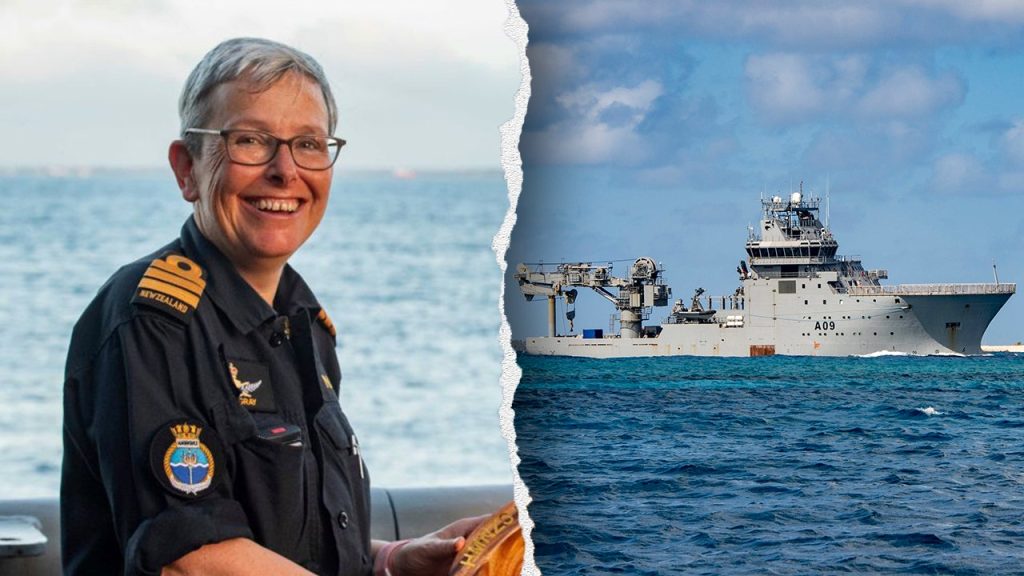New Zealand’s Defense Minister Judith Collins responded to claims that the appointment of a female captain, Commander Yvonne Gray, led to the sinking of the navy ship, The Manawanui. The vessel sank on a reef off the coast of Samoa that it was surveying, with all 75 crew members and passengers rescued. Collins dismissed the notion that gender played a role in the incident, emphasizing that the cause of the sinking is still under investigation. She criticized online commentators for their “misogynistic narrative” and lack of understanding of the complexities of naval decisions.
The sinking of The Manawanui, New Zealand’s first lost ship since World War II, prompted fears of a major fuel spill as the vessel began to leak oil. However, officials in Samoa reported that the amount of oil leaking was decreasing each day and being quickly dispersed by strong winds. Passengers, including civilian scientists and foreign military personnel, were forced to evacuate the ship in challenging conditions and darkness. The navy ship, which had been in service for New Zealand since 2019, had been purchased for $61 million and was not covered by replacement insurance.
Collins expressed her disgust at the online abuse faced by women in uniform following the incident, stating that it was behavior unbefitting of New Zealand’s values. She emphasized that all appointments in the military are made on merit rather than gender. A court of inquiry has been established to determine the cause of the sinking, with Collins standing by Commander Gray’s decision to prioritize the safety of her crew members. The sinking of The Manawanui raised questions about diversity, equity, and inclusion (DEI) policies in the military and highlights the challenges faced by women in leadership roles.
The sinking of The Manawanui has sparked nationwide debate about the role of gender and diversity in military leadership. Judith Collins has defended Commander Yvonne Gray against claims that her gender played a role in the sinking, emphasizing that decisions made in intense situations are based on experience and merit. The vessel, with a crew of 75, ran aground on a reef off the coast of Samoa while surveying the area. The incident marks New Zealand’s first ship lost since World War II and has raised concerns about potential environmental damage from a fuel spill.
Despite fears of a major fuel spill, officials in Samoa reported that the amount of oil leaking from The Manawanui was decreasing each day and being dispersed by strong winds. Passengers were forced to evacuate the vessel in challenging conditions and darkness, highlighting the dangers faced by military personnel and civilians in such situations. The sinking has also drawn attention to the importance of proper insurance coverage for military vessels, as The Manawanui was not covered for replacement despite being purchased for $61 million. An investigation into the cause of the sinking is ongoing.
The sinking of The Manawanui has reignited discussions about gender diversity and inclusion in the military, with Collins denouncing online abuse directed at women in uniform. She emphasized that appointments in the military are made based on merit and experience, rather than gender. The sinking has drawn attention to the challenges faced by women in leadership roles and the need for a more respectful and understanding discourse around complex situations. The court of inquiry will work to establish the cause of the sinking, while efforts continue to mitigate any environmental impact from the vessel. New Zealand’s values of decency and respect are being tested in the aftermath of this incident.













